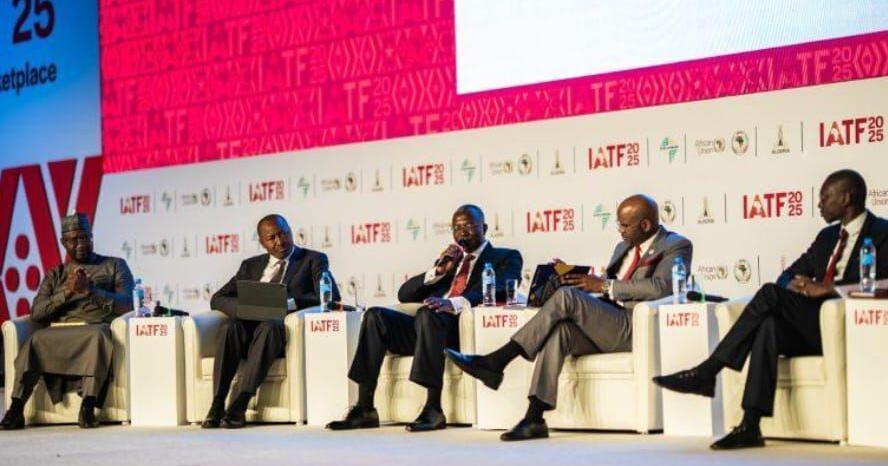Africa-Press – Liberia. Africa’s chronic financing shortfalls are stalling its ability to industrialize, trade competitively, and meet the African Union’s Agenda 2063 vision, financial leaders warned at the Intra-African Trade Fair (IATF2025) on Monday.
In a special session on “Strengthening Africa’s Multilateral Financial Institutions for Delivering Agenda 2063,” executives from Afreximbank, the African Development Bank (AfDB), Shelter Afrique, ZEP-RE, BADEA and the Fund for Export Development in Africa (FEDA) revealed alarming figures: the continent faces a $130 billion annual trade finance gap and attracts just 3 percent of global foreign direct investment (FDI) — despite its vast resources and young population.
They estimated that Africa needs at least $200 billion a year through 2030 to meet its development targets. Without bold reforms and stronger homegrown financial institutions, they cautioned, Agenda 2063 — the AU’s blueprint for inclusive growth and prosperity — could remain out of reach.
Dr. George Elombi, President-designate of Afreximbank, said the solution lies in industrialization and stronger financial muscle.
“If you have to trade, you have to produce what you trade,” Elombi told delegates. “That means processing our iron ore, timber and petroleum products. Industrialization creates jobs and wealth. But our institutions are undercapitalized. The combined exposure of just two Chinese banks in Africa exceeds all African multilateral lenders combined. We must act together as one.”
Benjamin Kamanga, Executive Director of ZEP-RE, highlighted another major obstacle: Africa’s low insurance penetration.
“Insurance is critical for investment, yet penetration in Africa is extremely low,” Kamanga said. “Farmers, SMEs and even major projects remain unprotected. When disaster strikes, governments borrow heavily to rebuild. We are investing in technology to ensure agriculture and SMEs, so floods or droughts don’t derail economies.”
By expanding insurance coverage, ZEP-RE hopes to reduce shocks that force governments deeper into debt after natural disasters or market disruptions.
The continent’s severe housing deficit, estimated at more than 52 million units, adds another dimension to the financing challenge.
“Agenda 2063 assumed 7 percent annual GDP growth, but we are stuck at 3 percent,” said Thierno-Habiv Hann, Managing Director of Shelter Afrique. “To catch up, we must grow at 10 percent. Housing is one engine of growth — but at current financing levels, the gap runs over 1 trillion US dollars.”
Hann stressed that solving the housing crisis could also stimulate job creation, boost domestic industries like cement and steel, and accelerate urban development.
Ousmane Fall of the AfDB said African institutions are developing innovative financing models to unlock capital.
“We are leveraging IMF resources to expand our lending capacity for African governments,” he noted.
Similarly, Dr. Tshepelayi Kabata of BADEA advocated for bold recapitalization strategies:
“We are using debt-to-equity approaches to recapitalize institutions like Shelter Afrique and development insurers. This is the only way to derisk housing projects and attract large-scale financing.”
Marlene Ngoyi, CEO of FEDA, emphasized that Africa must also address its currency dependence.
“We cannot keep relying on foreign currencies,” she argued. “A product from Kinshasa should reach Nigeria without going through the dollar or euro. Transformational finance must come from Africa, for Africa.”
By promoting intra-African trade settlements in local currencies, FEDA believes the continent can strengthen financial sovereignty and reduce external vulnerabilities.
The panelists agreed that weak, undercapitalized financial institutions remain a major stumbling block. With the world’s youngest population and abundant resources, Africa has enormous potential — but without addressing its $130 billion trade finance gap and low share of global FDI, progress will be slow.
“Our future cannot be outsourced,” one panelist concluded. “If Africa does not build its own financial muscle, Agenda 2063 risks being just another set of aspirations.”
For More News And Analysis About Liberia Follow Africa-Press






